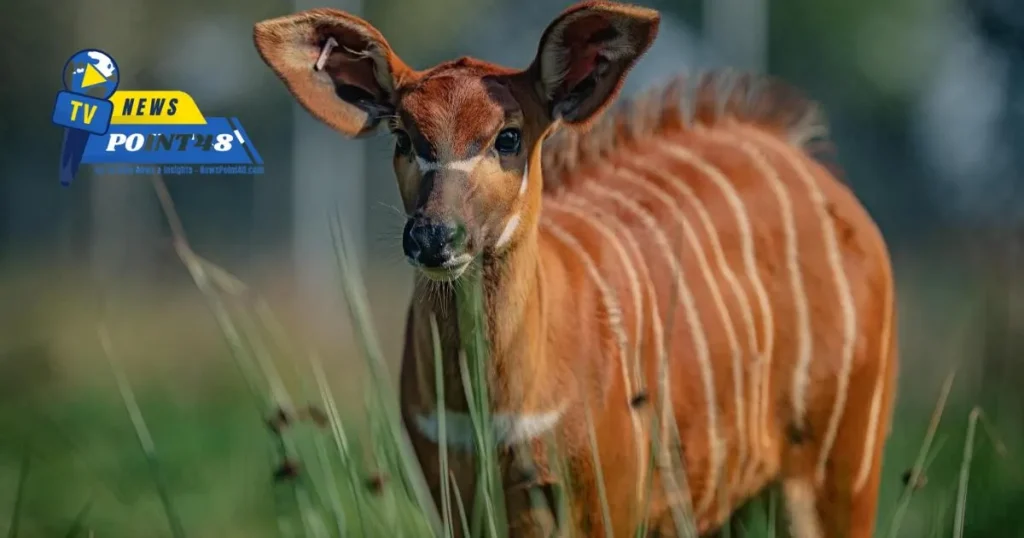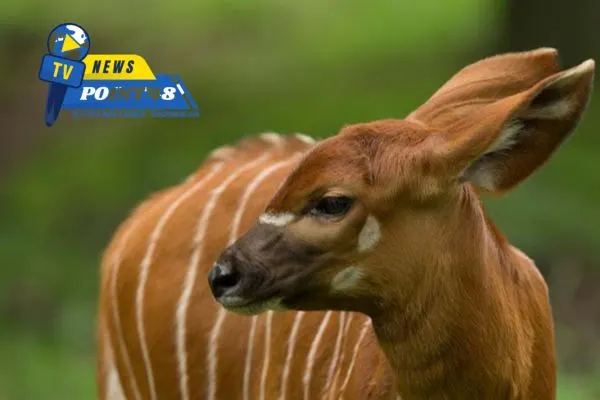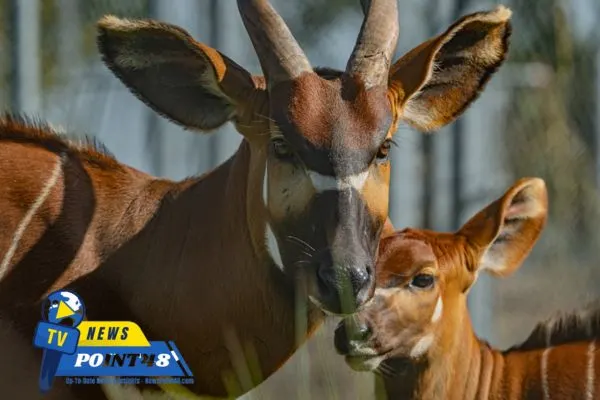
Chester Zoo | Rare Mountain Bongo Born at Chester Zoo — One of the World’s Most Critically Endangered Antelope [Pictures] Described as a turning point in conservation globally with the potential to save the species from extinction, There are now fewer than 100 remaining in the wild, making the birth of this calf a major event for both conservationists and zoo staff as they continue to try and save the species from extinction.
Mountain Bongo Woes
In recent years, the mountain bongo— a large and stunningly colorful antelope that inhabits the forests of Kenya — has undergone an alarming decrease in its population. Bongos are spread completely out of the dense forest where they once lived, habitat destruction due primarily to logging and agriculture has greatly diminished available habitat. Combined with habitation pressure, illegal hunting and poaching have contributed enough to the population decline that the species is now considered critically endangered.
Mountain bongos come in vibrant reddish-brown, have white stripes, and long elegant spiral horns. Normally found in the dense and largely inaccessible forests of high elevations, these animals have proven elusive. Sadly their natural habitat is so fragmented now due to a mixture of human encroachment and deforestation, that it would be very difficult for them to fend for themselves in the wild.
Animal Conservation work done at Chester Zoo

One of the leading sites for conservation and breeding programs is Chester Zoo, where their mountain bongos are helping to future-proof this species. The zoo is also actively involved in the survival of the species, working with Kenyan wildlife authorities as part of its global breeding program. The program will help to ensure that the population of mountain bongos is sustainable and genetically secure, preparing animals for eventual reintroduction into their natural range.
Zoo Miami said the new calf is proof that their breeding program works. Chester Zoo plays a key role in the survival of the species through careful management of the health and welfare of its bongos. The plan with breeding bongos in captivity is to reintroduce them into protected areas in Kenya where these captive-bred animals will hopefully help re-establish a wild population.
Necessity of Captive Breeding Programs
Captive breeding programs, such as that at Chester Zoo, are critical for species teetering on the edge of extinction. Conservationists invest in having a healthy, genetically diverse animal population already established in captivity which will act as insurance for these species. These programs also enable us to learn about the behavior and biology of the animals which is essential information needed to protect and conserve them in their natural environment.
For mountain bongos, which are so limited in the wild, captive breeding is especially valuable. Every calf born is a major accomplishment, not just serving as one more animal on the planet but also adding to the genetic diversity that is essential for ensuring the species’ long-term survival.
Public Support and Engagement

Word of the rare mountain bongo calf has spread fast, with hundreds of visitors heading to Chester Zoo excited to catch a glimpse of their new arrival. The zoo has also made a call for people to help support their conservation efforts by finding out more about endangered species and making donations to wildlife preservation programs.
Effective conservation requires public engagement. By shining a light on the plight of species like mountain bongos, with their distinctive red coat and even more distinctive white stripes, that inspiration can be harnessed to help secure a future for wildlife.
A Positive Step Forward
The birth of the mountain bongo calf at Chester Zoo is a poignant reminder that, with commitment and sheer hard work, progress can indeed be made in the fight to prevent species extinction. Though saving the mountain bongo will no doubt remain an uphill battle, the birth of one calf is a good start.
With conservations striving to continue their work in the protection of this magnificent species, albeit gradually, there is hope that mountain bongos will once again roam free and thrive within the wild. The work that Chester Zoo does for animal conservation is a model example of how zoos and wildlife organizations do more than just avoid extinction, they can help turn the tide against it as well.
Stay tuned with Newspoint48 for more current updates and Wildlife news.
